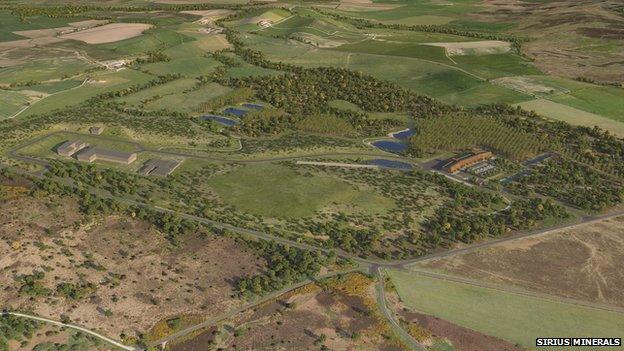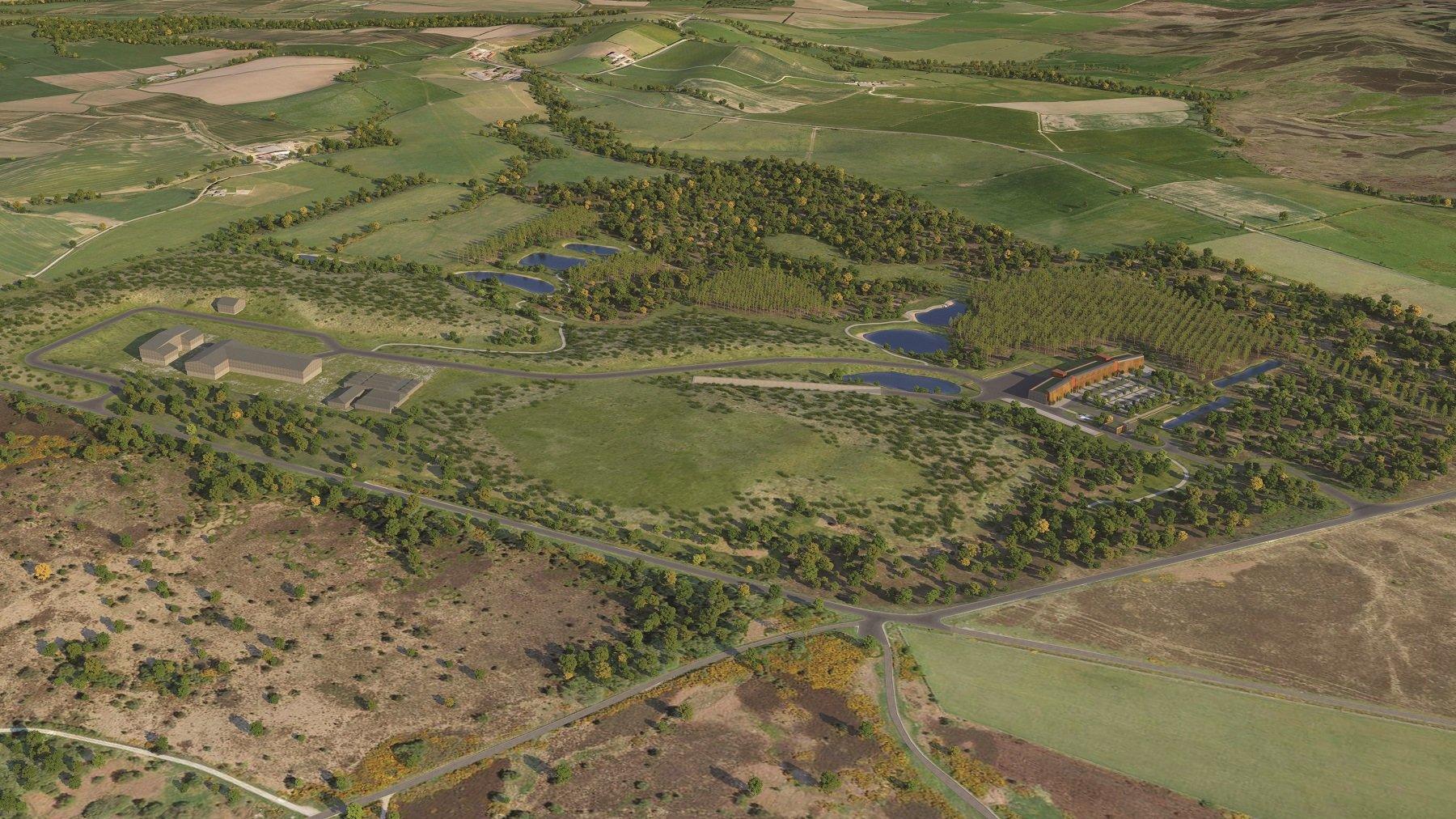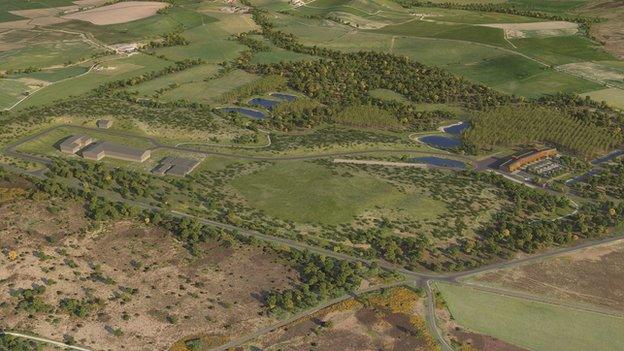North York Moors potash mine plans approved
- Published

The mine would be built on land near Whitby
A planned £1.7bn potash mine in a national park has been approved by the North York Moors National Park Authority.
Developer Sirius Minerals wants to mine near Whitby and build a 23-mile (37km) tunnel to a Teesside processing plant.
Sirius Minerals has said the mine would deliver at least 1,000 permanent jobs.
Andy Wilson, chief executive of the authority, said the mine was a "once in a lifetime opportunity".
He said: "The economic impact of the mine outweighed the environmental harm."
There would be "stringent conditions" for the mine's construction and working, he added.
The authority's planning committee voted 8 to 7 in favour in the meeting at Sneaton Castle, Whitby.
The term "potash" is used to describe a range of minerals containing potassium and the proposal is to mine polyhalite.
'Completely incompatible'
Ruth Bradshaw, of the Campaign for National Parks, said it was disappointed members had approved construction of the "world's largest potash mine".
She said the mine was "completely incompatible with national park purposes" and the promised economic benefits would "never justify the huge damage" to the area's landscape, wildlife and tourism.
The organisation also called for a public inquiry, with the final decision on the project to be made by the Secretary of State.
The mine will take five years to construct..
Plans include a construction of a minehead at Dove's Nest Farm and Haxby Plantation about 1.6 miles (2.5km) from the village of Sneaton involving mining shafts, buildings, roads and a helicopter landing site on a 64-hectare site.
The mine would transform North Yorkshire's economy, Ryedale District Council and Scarborough Borough Council have claimed.
A North York Moors National Park commissioned report, external suggested the construction phase of the mine would cost the area's tourism industry £10m a year.
Almost 30 environmental and leisure organisations had urged rejection of the plans.
- Published30 June 2015

- Published24 June 2015

- Published17 June 2015

- Published10 June 2015

- Published24 April 2015

- Published30 September 2014

- Published26 June 2014
